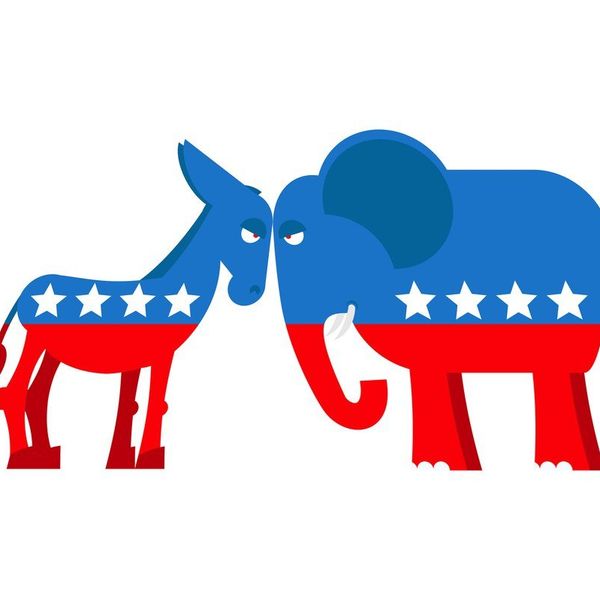I have never been a very political person.
But the uproar over the recent election, combined with the fact that I attend (let’s face it) a primarily liberal-leaning university, means that I’ve been confronted with politics whether I like it or not.
I don’t think that’s a bad thing in the slightest; it’s undoubtedly important for us as young adults to take an interest, if not a definitive stance, on the issues shaping the future of our country and the world as a whole.
It’s just that, somehow, nearly every aspect of politics has become two-sided.
We’ve become very good at labeling; categorizing; filing people into sectors; shipping them off to one side or the other, but never in between the end-marks.
At some point it was decided that Democratic and Republican, liberal and conservative — these are the only categories that define a political viewpoint.
It’s become nearly impossible to remember that these groups, these sides, were formed in the first place because people who shared similar beliefs and values and visions decided to come together and work toward them.
And it wasn’t so that they could wage war against every idea that didn’t align with their own; it was to make their voices heard, to have a say in the great reservoir of opinions and ideals that comes hand in hand with free speech.
Somewhere along the line, we climbed out of that reservoir and onto a stage. We made it into a one-man show. We decided that dissenting views only came from enemies.
And that, as it turns out, is exactly where we went wrong.
I recently decided to follow both the Being Liberal and Being Conservative pages on Facebook, just to see if that would be conducive to attaining a more balanced idea of both ends of the political spectrum.
To my surprise, the parallels between the two pages were more visible than the discrepancies. The liberal page boasted a few more posts about its platform and values than did its conservative counterpart (one of them, for example, was a very readable and pertinent article on how to ensure that elected officials are truly representatives of the people they serve), but overall I found that both pages were overrun with insults and allegations against prominent members of the opposite party.
There was, however, one interesting difference: followers of the conservative page primarily reacted to these scathing posts with additional insults and anger, while those of the liberal page often responded with laughter.
This makes sense, of course, seeing as a fair amount of the liberal page’s party-bashing posts were presented as jokes, while almost none of the conservative page’s were, at least not explicitly.
But what does this say about the attitudes of the parties toward each other, about the demographics for each group, about the recent election?
The simplest answer I can give is a lack of understanding and an utter unwillingness to change it. Allow me to play devil’s advocate:
Are liberals progressive or supercilious? Are they speaking for minorities or putting words in their mouths? Are they acting for the good of the people or overstepping their bounds?
Are conservatives a voice of reason or of ignorance? Are their values righteous or outdated? Are they entitled to opinions or are they unconditionally racist and xenophobic bigots?
I ask you:
Are either of these parties really aggressive, or have they merely been forced by each other to become defensive?
I don’t pretend to be offering anything particularly insightful here, as I’m sure there are many other people who don’t quite know where they stand — or whether they should stand at all — in such a this-side, that-side national battle. I only hope that all of us can take the initiative to listen to the voice of dissent once in a while; to start conversations with people who are going to disagree; to acknowledge, if not completely accept or understand, the other point of view.
If nothing else, just try to visit the opposite party’s Facebook page and come to your own conclusions.





















